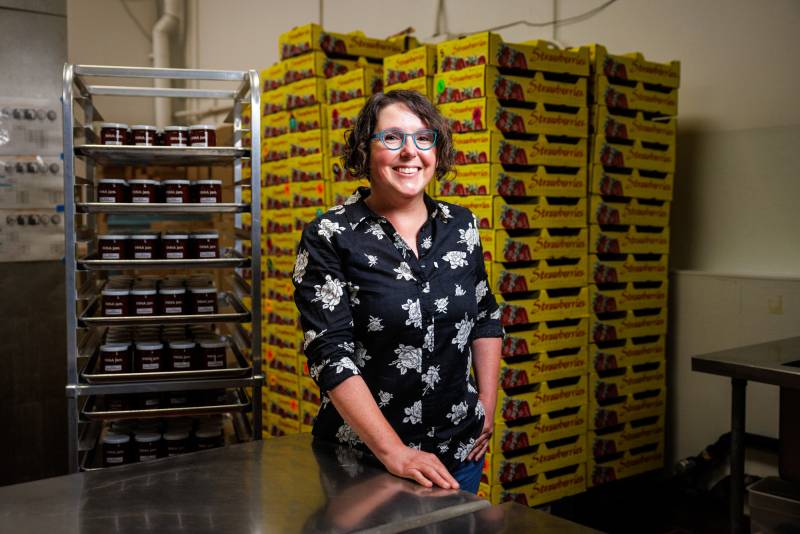It all started with a plate of cream cheese, pepper jelly and crackers. Trying that classic appetizer for the first time during a Thanksgiving feast in 2008, Dafna Kory remembers thinking it was “the most amazing thing ever.” Afterwards, when she wasn’t able to find a local source for jalapeño jam, she simply decided to make her own.
For Kory, that first batch of spicy-sweet pepper jam wound up setting her whole life on a new course: She started making jam obsessively out of whatever fruits she was able to forage in her Berkeley neighborhood. In 2010, she left her career as a video editor and started what would quickly become one of the Bay Area’s most beloved jam companies: INNA Jam.
Now, 15 years later, that jam journey is coming to an end — but not because the company is struggling for business, Kory stresses. She’s simply decided it’s time to move on. INNA will continue making its fruit-forward organic jams and shrubs (drinking vinegars) at its small production facility in Emeryville through the end of September. And then it will close its doors for good.
The Bay Area has never had any shortage of acclaimed jam makers with broad cult followings, like Berkeley legend June Taylor, a longtime hero of Kory’s. When INNA burst onto the scene in the early 2010s, Kory recalls, “I think the thing that set me apart was the simplicity of my jams.” Other jam makers who had deep culinary backgrounds often seemed most interested in coaxing out surprising flavors by combining multiple fruits or layering them with other ingredients. Kory, on the other hand, “came to it from a love of fruit.”

What that meant, practically, was that she always tried to make each jam the purest possible expression of a specific fruit varietal — i.e., not just strawberry jam but a limited edition jam highlighting the floral juiciness of a Seascape strawberry. She understood, and loved, the bright Hawaiian-punch sweetness of a Flavor King pluot, the honeysuckle perfume of a Blenheim apricot, and the sticky, caramelly richness of a Black Mission fig (a jam Ina Garten herself declared her favorite).



